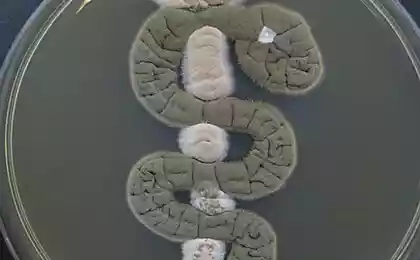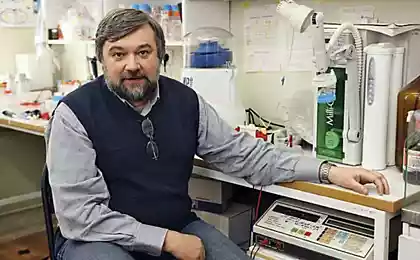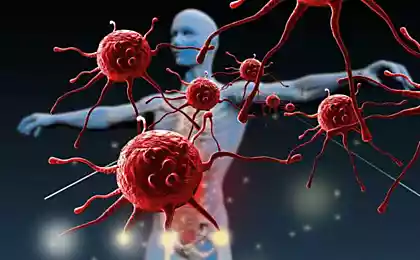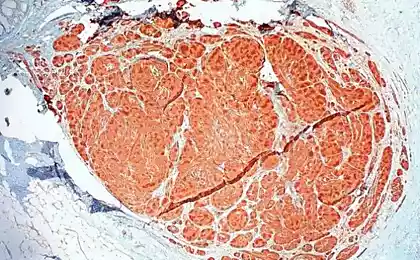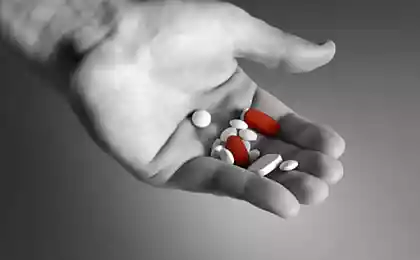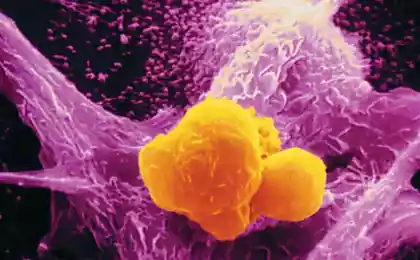677
4 spices that kill bacteria and protects cells.

Spices destroy bacteria and protect cells
"We now know that spices act as potent antibiotics, blood thinners, anti-cancer agents, anti-inflammatory factors, regulators of insulin and antioxidants," - says psychologist Harry G. Preuss, Dr. philo-sophia from Georgetown University Medical Center and one of the leading researchers in this field, - "Herbs and spices are regularly added to food in small doses, stimulants are unique health.»
"Fab Four" of herbs and spices
Against inflammation: Ginger.
Inflammation is the alleged cause of heart disease, stroke, cancer, Alzheimer's disease and arthritis. That impressive news active compounds of ginger (gingerols) reduce pain in animals and act as inhibitors of COX-2 (cyclooxygenase), as well as preparations antiarthritics, e.g., Celebrex. In addition, gingerols, like aspirin, thin the blood, which is useful in diseases of the heart.
The best proof that ginger is an antiinflammatory drug, obtained by researchers IE University of Miami in patients with osteoarthritis of the knee who received 255 mg of ginger extract twice a day for six weeks, the knee pain is significantly reduced compared to those who did not receive ginger . As a side effect, they also had a lower incidence of gastrointestinal disorders.
Anti-microbial: Oregano
"Not surprisingly, oregano is used since ancient times to fight infections," - says Dr. Preuss. He recently discovered that oil of oregano is as effective as vancomycin antibiotic in the treatment of staphylococcal infections in mice. In addition, it destroys fungal infections.
The daily dose of oregano oil, oil mixed with fenugreek, cumin and pumpkin seeds, lowers blood pressure and improves blood sugar levels and insulin sensitivity in rats with diabetes. In studies conducted in Texas, oil of oregano kill parasites in the human body.
Dr. Preuss concludes that people who take the oregano in a small food reasonable quantities, may obtain further antiparasitic and anti-diabetic protection, though to verify this assertion requires additional human trials.
Cancer: Turmeric
The yellow turmeric - spices, which is part of curry powder - contains high-kai concentration powerful antioxidant curcumin. According to recent studies, curcumin helps to suppress cancer. In tests in vitro (in vitro), 80% of malignant prostate cancer cells under the influence of curcumin destruct.
Curcumin supplements to feed the experimental mice dramatically slow the growth of implanted human prostate cancer cells. The same thing happens with the cells of colon cancer and lung cancer. Researchers believe that curcumin blocks the activation of genes that cause cancer.
Additional effect: by reducing the inflammatory activity of curcumin reduces swelling of joints and progressive brain damage in animals. In a study of the University of California additives in small doses of curcumin feed mice with Alzheimer's disease have reduced the content-s of plaques in the brains of mice by 50%.
Diabetes: Cinnamon
Adding cinnamon to foods, especially sweet foods, helps control spikes in blood sugar, says researcher Richard Anderson of the US Department of Agriculture. "Cinnamon helps normalize blood sugar levels by increasing insulin sensitivity," - he says. Recently, he singled out the active com-ponents of cinnamon - metilgidroksihalkon or MGHP that in vitro accelerated processing of blood sugar by 2000% or 20 times!
Thus, adding a food cinnamon in small amounts - e.g., sprinkling it desserts - you do a more effective job of insulin. Cloves, turmeric and bay leaves also have this effect, but weaker.
This is a very important discovery. Thus, you can avoid an increase in blood sugar and insulin levels and thereby prevent diabetes. It was found that animals consistently low insulin levels is a factor that slows down aging and increase lifespan.
The strongest spices.
The strongest antibiotics. The strongest killers of 30 species of bacteria, according to researchers at Cornell University have appeared (in descending order), onions, garlic, allspice, marjoram, thyme, tarragon, thyme, cloves, bay leaves and cayenne pepper.
A powerful antioxidant. The list is headed by the oregano, thyme, sage, thyme, rosemary, saffron, turmeric, nutmeg, ginger, cardamom, coriander (cilantro), basil and tarragon. Researchers from the University of California (Davis), believe that the antioxidant activity of vitamin E is similar to thyme
Dried spices or fresh? Dried and fresh spices in their properties are similar to ...
Cheers!

